Adopt, don’t shop: A critical look at the popular slogan
Initially coined by animal advocacy group Last Chance for Animals, “Adopt, don’t shop” quickly became a common campaign slogan among animal rescue organizations. However, the movement may be more harmful than helpful for animals.
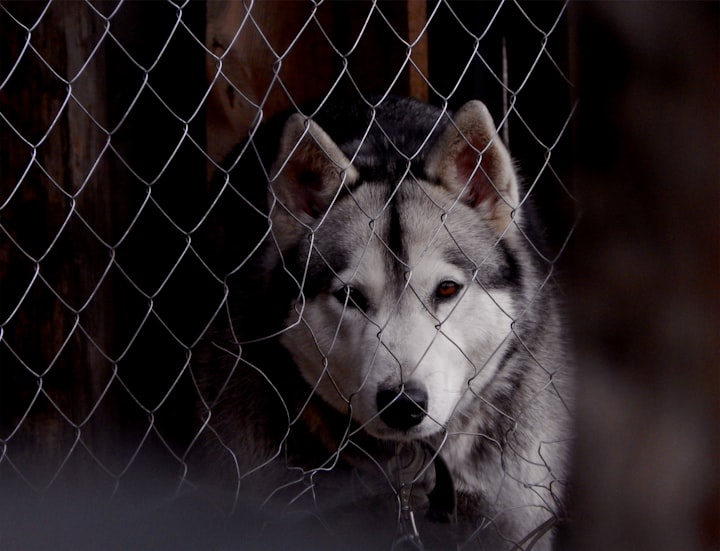
Domestic animal overpopulation is a global problem. In the United States alone, over 6.5 million animals enter shelters annually. Many of them find forever homes, but some never make it out. But why is that? What is causing pet overpopulation, and how can we stop it? Many people believe that the answer lies in the phrase “Adopt, don’t shop” after all, aren’t breeders to blame for this? Unfortunately, we can’t solve this problem by boycotting breeders or exclusively supporting shelters. There is hope for ending pet overpopulation, but it involves all of us. We need to change how we think about this issue.
How I got involved with animal rescue
My first experience with rescuing an animal was in 2006; I was eight years old. Our new neighbours had a spunky little Border Collie cross that could scale any fence. Down the road was a wandering husky mix that wasn’t ever home. Before long, these two dogs met up. Fourteen years later, I still have one of their puppies. The owners of the Border collie cross were ill-prepared for a litter, especially not ten puppies. By the time the pups were three weeks old, they had left them without food, water or shelter. We called the SPCA several times, but it didn’t help the situation.
When the owners weren’t home, I would sneak into the backyard and care for the puppies. Their mother was always off wandering the road; the pups weren’t getting enough milk. I went over once a day to feed and water them. When the puppies were around five weeks old, I noticed one of them was lethargic and having runny stools. I told my mom when I returned home. She drove us to the vet clinic so we could get some deworming medication. The next day when I fed the pups, I dewormed them all too. Not an easy feat for someone my size, but I eventually succeeded. They loved to chew on my clothes as I scooped food into an empty flower trough. For several days after I dewormed the puppies, they were defecating large amounts of tapeworms. Each puppy was infested with them.
I grew very frustrated with the owners; they were hardly ever home. They must have known someone was raising the puppies for them. My mom left them a note about the worms. She suggested they clean up their backyard so they don’t get reinfested. At six weeks old, the owners started selling the pups. Just one week after I treated them. They were not only too young to be rehomed, but they were also still sick. We asked them for a free puppy since we had practically raised the litter, they told us we would have to pay for one. I was distraught, they neglected the puppies, and now they were profiting off of them. They told us they needed the money to have the mother spayed. So my mom reluctantly bought a puppy. Her name is Windy and she turns 14 this summer.
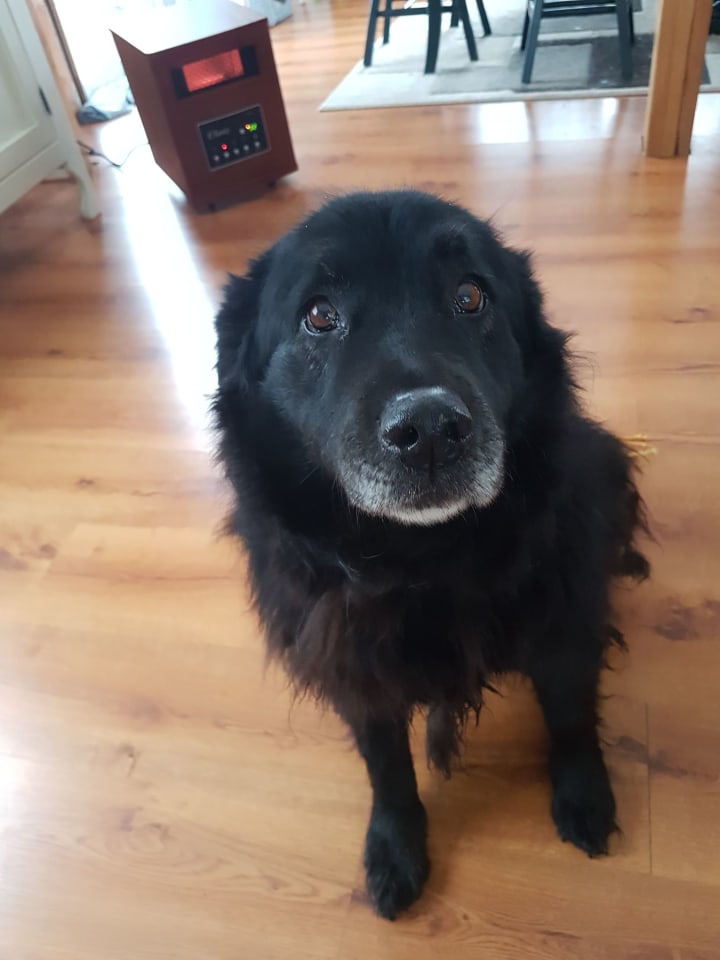
Three weeks later, they had one puppy left. Maya was small and timid compared to the other puppies that I raised. Since they couldn’t sell her, they let her roam freely up and down the road. One day I scooped her up at the end of the driveway when she was walking by. I brought her into the house for some water. My mom examined her and immediately called the vet. They wanted to see her right away. She was hospitalized for two days before she died at the clinic. She had a severe worm infestation. Her death was preventable, but greed stopped her owners from giving her the care she needed. They went on to have one more litter before moving away.
Since then, I have taken in six barn cats Diesel, Korra, Juniper, Orian, Kabuki and Stellar.

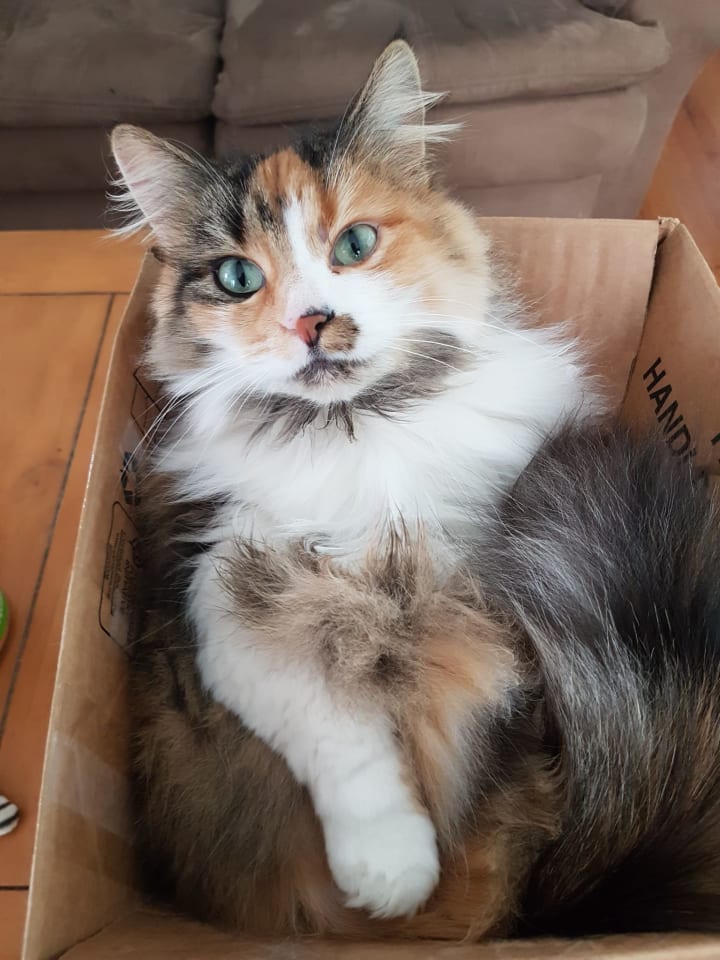




I rescued two corn snakes from a hoarding situation.
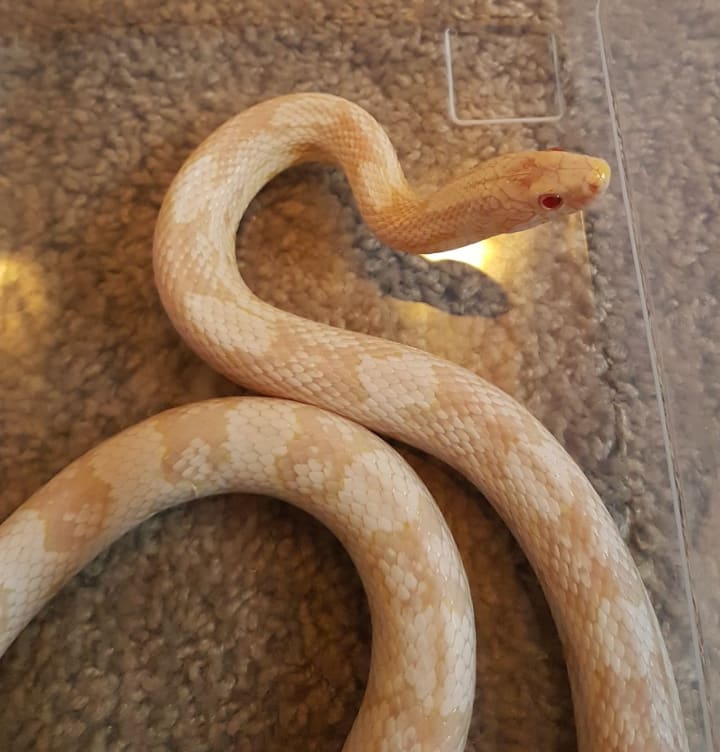
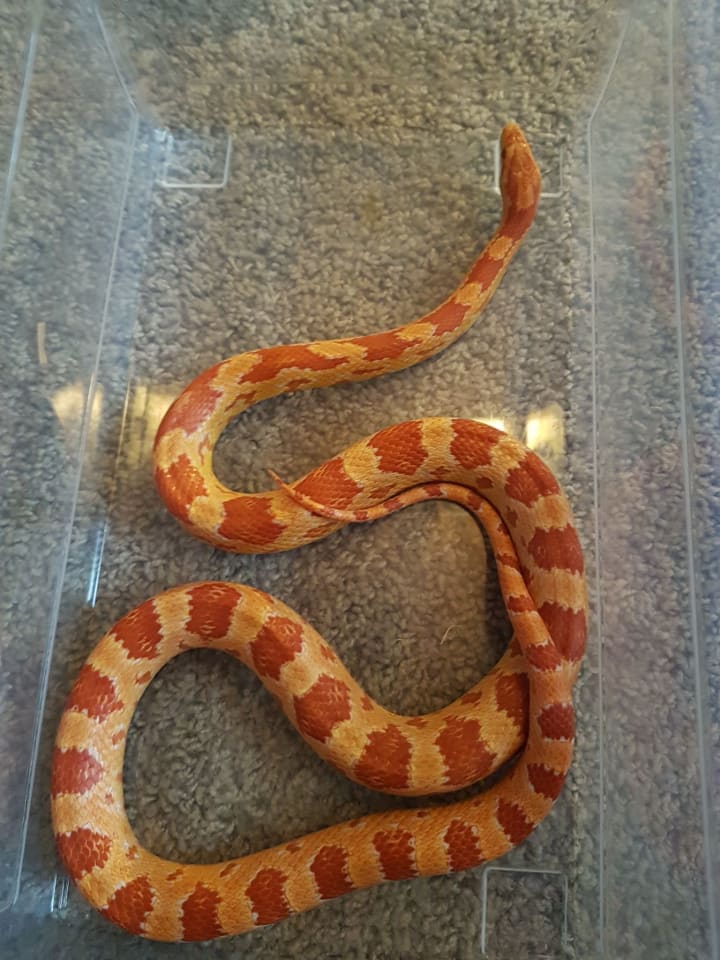
And have rescued and rehomed dozens of rabbits as well as fostered two kitties and a cockatiel.
Only one of my pets was formally adopted. His name is Kiba, but he is also known as Geeber, Keebs, Happy and Lumpelstiltskin. He is a Lab/Husky/German Shepherd cross, possibly the largest dice roll we could have gotten. We adopted him at eight weeks old. He is now nine years old. He often gets lipomas, and he needs special supplements for his hips. He has no rear angulation (likely from being neutered at six weeks old), so they are an ongoing issue. He loves water and will dive in kiddie pools if given a chance. In his youth, he was an avid hiker and swimmer. He is talkative and will strike up a grumbly conversation with anyone he can. Kiba has always been a wonderful pet, but he did fail as a farm dog. He has a high prey drive and will chase and kill small animals if given a chance. We have made lots of changes to accommodate a dog like him on the farm. Part of being a good pet owner is being adaptable. However, some animals have unique challenges that some owners are unable to deal with safely. We are fortunate that we were able to train out his problematic behaviours. If not, he would likely have been rehomed or sent back to the shelter. We should have known that his cross would be an issue on the farm, but we focused too much on the cute puppy and didn’t think about his genetics.

My experiences with animal rescue have made me realize that we are not any closer to coming up with real solutions without acknowledging the contributing factors of pet overpopulation.
Issue One: Disreputable rescues
Adopting animals has grown in popularity, especially since the start of the pandemic. Unfortunately, not all adopted animals stay in new homes. Some animals are returned multiple times before finding a permanent residence. There are many factors, such as poor placement and behavioural issues. But part of the problem is the “Adopt, Don’t Shop” movement. Now that adoption rates are so high; many people feel pressure to adopt rather than buy a purebred animal. Families are more likely to adopt animals that do not mix with their lifestyle to avoid getting shamed for ‘shopping’. Purebred dog owners have reported online harassment for not adopting, even disabled people who purchased a service dog.
Some shelters do minimal screening on adopters, resulting in people without the proper knowledge obtaining breeds that aren’t right for them. This can result in animals being returned. And makes owners feel guilty, even though in some situations they were set up for failure. Some rescues have the opposite problem; they have incredibly high standards. Some organizations have been reported for being classist and ablest by refusing to adopt out to disabled, elderly or low-income individuals or families. Some rescues adopt out so few animals that they eventually have a hoarding problem that results in hundreds of animals being seized.
There is also a new category of disreputable rescue, “Retail Rescue.” These “rescues” buy dogs from puppy mills in North America, Europe and Asia. They ask for donations so they can purchase the dogs and transport them. The dogs then get fake rescue stories to generate more donations. Often they claim dozens of purebred puppies are being saved from Asian meat markets. When the animals are adopted out, they are just being resold. You can’t stop a puppy mill when you are unknowingly keeping them in business. This practice is gaining popularity, but thankfully people are catching onto it. Rescues that operate like the ones mentioned are why it is essential to do research on shelters or rescues you want to adopt from. Not all organizations operate the same. Don’t be afraid to ask questions and watch out for red flags. Use the Shelter Care Checklists to make sure the facility is following ASV Guidelines.
Issue Two: The problem with pet stores
In the United States, there are over 18,000 pet stores, most of which sell live animals. Pet stores have done extensive marketing to make customers believe the animals are sourced from small local breeders. When you ask a staff member where they get their ferrets, they aren’t likely to tell you that over 90% of ferrets in the United States come from a single animal mill that breeds ferrets, beagles and cats for animal testing. Pet store employees want to make it seem like you are supporting local breeders. However, ethical breeders don’t sell to pet stores, and this goes for all species. All animals sold at chain pet stores come from an unethical source. You may have heard the word distributor used when asking about animals. A distributor is an animal mill. They have standards just high enough to avoid getting shut down. They are mass-producing animals that are shipped out to locations all over the US and Canada. Dogs, cats, birds, rabbits and reptiles are highly profitable for pet stores. A single puppy can sell for over $5000 at Petland. All that they pay for is a short vet check and sometimes kennel club registration.
Issue Three: Kennel clubs need higher standards
In the United States, the American Kennel Club is a pedigree registry that promotes purebred dogs. It has information on breeding, showing and sports. Despite its prestigious reputation, the AKC still allows puppy mills and backyard breeders to be members. They also don’t require breeders to health test in order to register puppies. Since kennel clubs make money off of membership, it is in the organization’s best interest to allow as many breeders to join at possible. Kennel clubs have a code of ethics but no way to enforce them. Kennel clubs do not visit breeding facilities or ensure the health or wellbeing of the dogs they register. Anyone can join a kennel club, so long as they have money. This is why it is vital to find breeders that aren’t just doing the bare minimum. Many people still turn to kennel clubs to find good breeders. Buyers have no idea a puppy mill could be advertising on the AKC Marketplace.
More recently, dozens of fake kennel clubs and dog registries have partnered with backyard breeders so they can profit off of membership fees. They are for breeders that don’t know the lineage of a dog but want to breed anyway. The most infamous is the Continental Kennel Club. They register any breed or mix, and they have even registered animals in stock photos. No pedigree is necessary to join, just a picture and your membership fee. It’s confusing to pet buyers and profitable for unethical breeders. The average person doesn’t know what to look for, and the real kennel clubs aren’t helping. It is now more complicated than ever to find reputable breeders and healthy dogs. Both the American Kennel Club and Canadian Kennel Club fail to mention health testing is a requirement for ethical breeding on their websites. Kennel clubs also don’t discipline dog show judges that favour off-standard or unhealthy dogs.
Issue Four: Designer dog disaster
Perhaps still the most controversial topic in the dog world is designer dogs and doodles. A designer dog is any F1 (first gen) cross between two purebred dogs. A doodle is any breed mixed with a standard, miniature or toy poodle. They shoved purebreds out of the spotlight and have been wildly popular for many years. It became a sudden trend to own a puggle or yorkiepoo, and the price of mixes skyrocketed. Owners believed they were avoiding health issues associated with purebred dogs. Regrettably, it was discovered by many people that mixing dog breeds is not what makes them healthy. The myth that mixed breed dogs are healthier than purebreds has been scientifically disproven. However, that doesn’t stop backyard breeders from profiting off of the trend.
The most popular of these crosses is the “goldendoodle,” a cross between a golden retriever and a poodle. They were originally created for work as service dogs, but they gained popularly as companions. Doodle breeders commonly spread false information about them being hypoallergenic and having the best traits from both breeds. In reality, every time a dog is mixed, it’s like rolling a dice. The personality, coat type and temperament are random in F1 crosses. Even the creator of doodles has come forward to talk about how he regrets breeding them. Since the popularity of designer dogs increased, puppy mills have kept up with the demand. Breed clubs made it a rule that members may not use dogs in crossbreeding programs. This made mills and backyard breeders buy largely unregistered stock to start their programs. The uncertainty in breeding crosses often results in dogs being rehomed or surrendered. What you expect a cross to be like is not always what you get, especially since these dogs come from unethical sources.
Issue Five: Ethical breeders are challenging to find
So what does make someone an ethical breeder? How do you draw the line between animal mills, backyard breeders and ethical breeders? Why do we need breeders while animals are in shelters?
An ethical breeder is someone that works on improving the genetics and structure of their chosen breed to increase longevity and overall health. They utilize OFA, PennHIP, and Embark testing before deciding if their dog should be bred. For example, ethical pug breeders will do the breed club’s recommended health testing. They will check for Hip Dysplasia, Luxating Patellas (annually), Dry eye, Dystichia, Entropion, Proptosis, PDE, Elbow dysplasia, and PKD. They will also get a BOAS grade and check the dog’s nares. If a pug breeder skips this testing, they are automatically considered a backyard breeder. Health testing is the most important aspect of ethical breeding regardless of breed or cross. However, it is also essential that the breeder titles their dogs in conformation and other dog sports such as agility or obedience. Doing this proves that the breeding dogs are functional and sound. Dog shows exist to compare breeding stock against the written standard. Unfortunately, the standards sometimes leave room for interpretation and favour more extreme looks. Kennel clubs need to prevent judges from selecting dogs with exaggerated appearances over more modest dogs closer to the standard.
Ethical breeders carefully screen buyers, often with a questionnaire. They also have a contract stating that if the owner can no longer care for the animal, it legally needs to be returned. These contracts also have a spay/neuter agreement unless the animal is going to another breeder. The amount of money an ethical breeder spends on health testing and dog sports is rarely covered by a puppy’s price. Most ethical breeders either break even or lose money.
A backyard breeder uses dogs to make money and skips all the steps ethical breeders take in favour of profit. Backyard breeders commonly have well cared for dogs and are very good at tricking buyers into believing they are ethical. The puppies are often vaccinated and dewormed, but that’s it. A vet check is not the same thing as health testing. Even though health tests are usually done at a clinic, they require results to be submitted to a 3rd party. Sometimes backyard breeders forge health testing documents and pedigrees in order to charge more money.
In the last few years, breeding “fad colours” has become marketable. Every breed has a list of accepted colours that can be shown and registered. Some backyard breeders have crossed dog breeds to get “rare” colours. An example is French Bulldogs; they only come in three colours, white, cream and fawn (markings such as brindle and a black mask are permissible). But now you can find blue, chocolate, merle, lilac and countless other colours. All of them are unaccepted. They have been mixed into the breed by “hanging” papers.
Puppy mills do the same things, just on a much larger scale and with far worse conditions. Animal mills are technically legal in both the United States and Canada. It is tough to shut them down since many have changed the way they operate. Two large online puppy mills are www.greenfieldpuppies.com and www.gentlegiantsrescue.com. Both have dozens of independent breeders that produce puppies for them. Backyard breeders and puppy mills also have been known to place breeding dogs in “guardian” homes to reduce the number of dogs on the property and maximize profits. It is a different practice than co-ownership since the guardian family does not own the dog.
Purebred is not the same thing as well-bred. Both kennel clubs and shelters fail to explain the differences between ethical and poor breeding practices. “How to find a good breeder” lists all too often leave out critical advice that can steer the general public in the right direction. This has lead to a large number of people hating all breeders, ethical or not. And many people detesting the breeding of brachycephalic dogs. Misinformation on dog breeding is prevalent, and the “Adopt, Don’t Shop” movement has kept people polarized. Supporting an ethical breeder does not result in the death of a shelter dog. Shelter dogs often come from puppy mills, backyard breeders, accidental litters and feral populations.
Without ethical breeders, we would not have healthy purebred dogs. The ability to check the DNA of breeding dogs can eliminate hereditary illnesses and prevent inbreeding depression. Sadly, the majority of breeders around the world breed dogs with unknown health since they skip testing. The future of purebred dogs depends on the choices we make.
So, what we can do?
Not everyone can or wants to adopt. Some people get rejected for renting, even if the landlord allows pets. Other people need dogs for specific jobs. Instead of shaming people that are looking to buy from a breeder, educate them.
Explain what to look for in an ethical breeder, talk to them about why fad colours and designer dogs are wrong. Tell them to ask for proof of health testing before they decide on a dog. Encourage people to contact breed-specific shelters before settling on getting a puppy. Have them go to a dog show so that they can meet the breed. Helping people buy the right breed for their lifestyle keeps dogs out of shelters. If someone you know wants to get a dog from an unethical source, encourage adoption. Not everyone can afford health-tested puppies, but that is not an excuse for supporting poor breeding practices.
Consider volunteering at your local shelter or fostering stray animals—help out at a vet clinic that offers free or discounted sterilization. Donate to small humane societies. Promote adoption to people that are just looking for a companion. Try to purchase products from pet stores that do not sell live animals. Prevent your animals from having accidental litters. Talk to your friends and family about responsible pet ownership. And most importantly-
Adopt or shop responsibly.

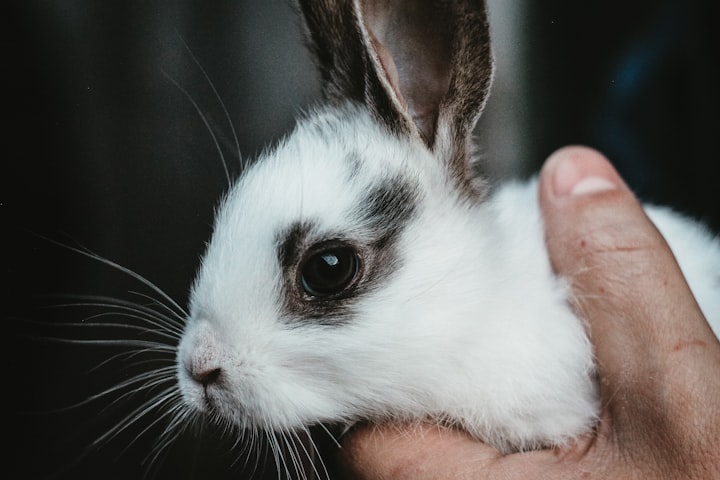



Comments (1)
50% Off Special little Rottweiler puppies. Come choose your special little Rottweiler puppies now. They have their first set of shots, their tails docked, and dew claws removed. They are full of love and kisses and they will love you so much. These Purebred German Rottweiler babies can't wait to join their fur-ever family. Our puppies are cuddly, friendly, and have even been to the vet who says that they are healthy and ready to go! They're hoping that you call about them soon. Don't miss out! Call/Text (724) 220-6073, OR Visit our website https://goodwillrottiehomes.com/rottweiler-puppy/ *due to the overwhelming amount of emails we are not able to respond. We offer financing and payment plans!!! Goodwill German Rottweiler Puppy Exceptional Quality Is Not Expensive, It's Priceless! Where you'll find the puppy that you've always wanted! I breed for size and huge heads with great temperament. (724) 220-6073 I am a home based Purebred German Rottweiler Puppy Breeder With Medium, Standard and Large Size Rottweiler Puppies For Sale With True Block Heads. I breed Large, healthy, quality, German Rottweiler puppies that have big block heads and sweet faces, champion sired, champion bloodlines. Breeding exceptional, superior quality Rottweiler's with exquisite beauty. My puppies truly speak for themselves Your Puppy Package includes: -Daily puppy pictures and updates -A starter booklet with advices -DNA test -Health check -Shots and vaccinations -Deworming treatment -Flea treatment *optional -Microchipping *optional -Shipping (with fee)